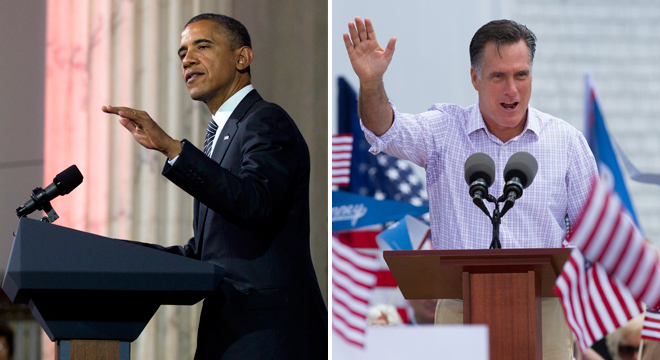The Supreme Court’s decision to uphold the Affordable Care Act’s individual mandate under Congress’s taxing power has sparked a heated debate between the Obama and Romney campaigns over whether the provision is a “tax.”
After initially siding with President Obama that the mandate is a penalty rather than a tax, Mitt Romney embraced his party’s message Wednesday that the decision reveals Obama sneaked a tax hike past the American public.
“The Supreme Court has the final word. And their final word is that Obamacare is a tax,” Romney told CBS. “So it’s a tax.”
His campaign on Thursday issued a press advisory saying that even the Obama administration’s Solicitor General Donald Verrilli argued before the high court that the penalty for not purchasing insurance was a tax.
Team Obama maintains otherwise, with his campaign spokesman Ben LaBolt telling CNN Thursday that the White House defended the mandate’s constitutionality “under the section of the law that is the tax code, but it said very specifically that it’s a penalty.” Team Obama has sought to fend off attacks by saying it disagrees with the court even though the court didn’t label it a tax; it merely validated it under Congress’s taxing power.
The sparring is easy grist for a campaign in which Republicans want to hammer Democrats as tax hikers. But what did Verrilli really argue — and what did the court really say?
The answer involves a nuanced distinction between the colloquial notion of a tax and a fine collected through the tax code for noncompliance with a law.
Both are constitutional under under Congress’s power to tax, but are different in nature. The fine for failing to purchase insurance is like a tax insofar as it’s collected by the Internal Revenue Service. But it’s no more a tax than a penalty on businesses who fail to file a required form in time. A primary purpose of taxes is to raise revenue. If the individual mandate functions as intended, everyone able to buy insurance would do so and there would be no revenue collected, the administration argues.
Verrilli maintained this distinction throughout oral arguments before the Supreme Court late in March. He argued that the penalty — like other penalties — is enforced through the tax code and is thus “justifiable under [Congress’s] tax power,” but functions as a penalty for engaging in behavior that’s deemed undesirable for society.
“I think in terms of the tax part, I think it’s useful to separate this into two questions,” Verrilli said. “One is a question of characterization. Can this be characterized as a tax; and second, is it a constitutional exercise of the power?”
“Congress has authority under the taxing power to enact a measure not labeled as a tax,” he added. “[I]f they raise revenue, they are exercises of the taxing power, but their purpose is not to raise revenue. Their purpose is to discourage behavior.”
The confusion is an outgrowth of the fact that Democrats opted not to write the mandate explicitly as a tax in part to shield themselves from GOP attacks, and in part because they thought calling it a penalty would help bring Republicans on board. The White House reportedly held internal debates over whether to defend the mandate more explicitly as a tax, given that Congress’s power to tax is hardly questionable under the Constitution.
But after the political decision they made there was no turning back. Verrilli sought to thread that needle before the Supreme Court.
Grilled by Justice Antonin Scalia on the fact that Obama said it wasn’t a tax, the solicitor general responded, “The president said it wasn’t a tax increase because it ought to be understood as an incentive to get people to have insurance. I don’t think it’s fair to infer from that anything about whether that is an exercise of the tax power or not.”










